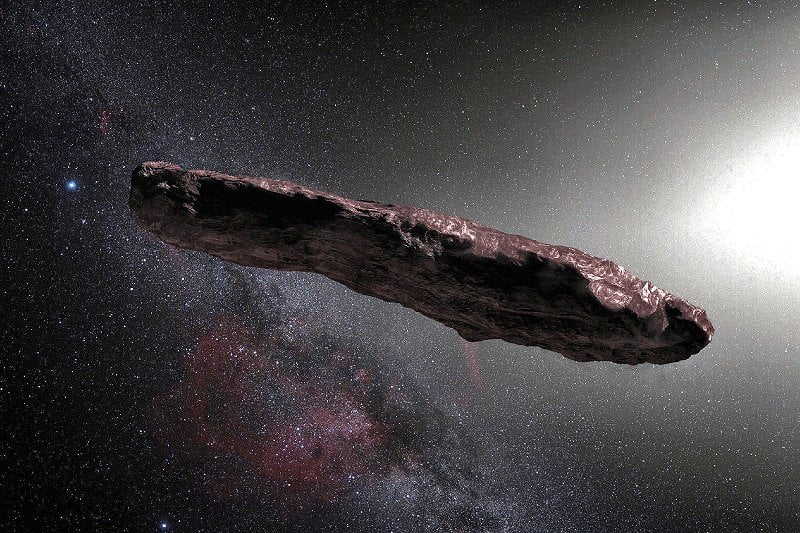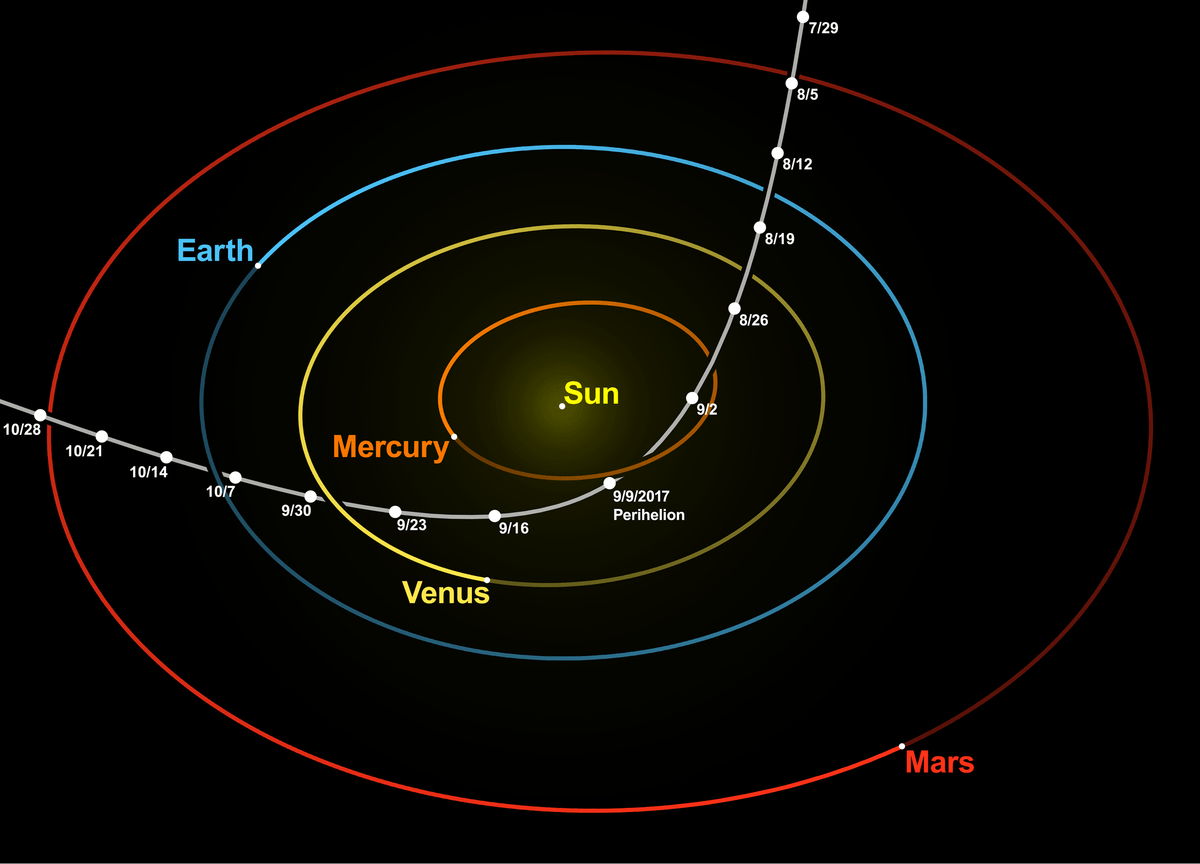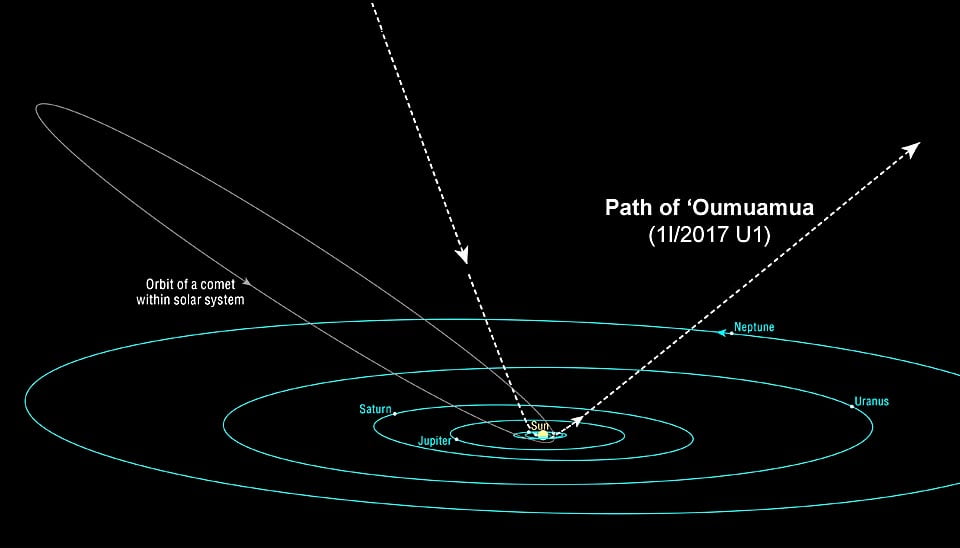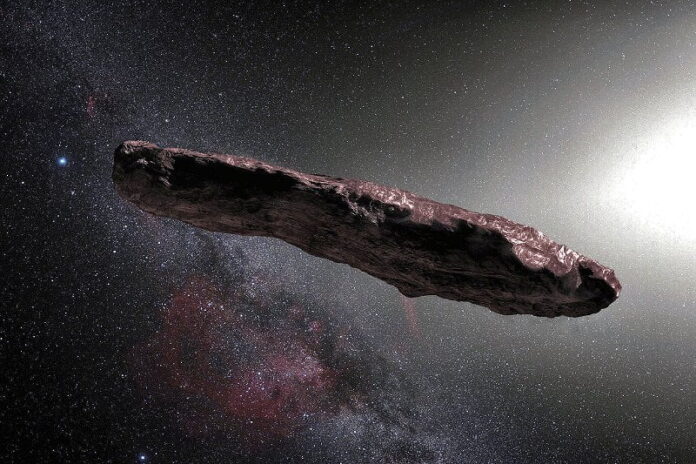Our esoteric solar system’s first ever identified interstellar visitor in recorded history is even more weird (and alien) than previously thought, according to a new study done at the Centre for Planetary Sciences, University of Toronto Scarborough. The mysterious cigar-shaped asteroid known as 1I/2017 U1 or ‘Oumuamua, which was first spotted speeding through Earth’s neighbourhood on Oct. 19, 2017, probably originated in a two-star system according to the findings of the study.

The unusual cigar-shaped asteroid baffled researchers last year as it also sped around the sun before disappearing to the outskirts of the solar system, on its route back to the deep interstellar space.
‘Oumuamua roughly translates to “scout” in Hawaiian and was discovered by researchers at Haleakala Observatory on the island of Maui using the Panoramic Survey Telescope and Rapid Response System (Pan-STARRS).
Calculations revealed that the asteroid zipped through our solar system at around 85,700 mph (137,900 km/h). It was initially thought to be a comet although it displayed no cometary traits such as a long tail, or a cloud-like “coma” around its core.
In fact, ‘Oumuamua’s surface was reddened by cosmic rays over millions of years of travelling through outer space and it barely showed any signs of activity suggestive of ice, like a comet might display. On the contrary, it looked to be composed of solid rock-like elements.
Based on its hyperbolic orbit, astronomers could tell that the 1,300-foot-long (400 meters) and 130 feet (40 m) wide ‘Oumuamua asteroid wasn’t gravitationally bound to the sun.

According to a statement by the study’s lead author Alan Jackson, a postdoctoral researcher at the Centre for Planetary Sciences at the University of Toronto Scarborough, “It’s quite odd that the first object we would see from outside our system would be an asteroid, because a comet would be a lot easier to spot, and the solar system ejects more comets than asteroids.”
Moreover, if the findings of the new study are to be believed ‘Oumuamua probably didn’t come from a solar system like our own. It was born into a binary system that possesses at least one big, hot star. Previous research has also suggested that a lot of these binary systems are out there in space.
Jackson and his colleagues performed computer-modelling work, and gathered that systems with two close-orbiting stars are much more efficient at booting out asteroids than one-star systems.
“One of the reasons could be that such systems comprise predominantly rocky bodies orbiting relatively close in the prime ejection zone. It is highly likely ‘Oumuamua was booted out during its natal system’s planet-formation period” Jackson and his team said.

It is still not clear as for how long ‘Oumuamua has been voyaging through the deep space. Officials at NASA reckon the asteroid is now hurtling towards the outer solar system and has become too distant to be studied even with large telescopes since mid-December 2017.
However, the good news is that astronomers managed to amass a slew of data about ‘Oumuamua while they could, and they would certainly be mining this vital information in the months to come.
“Maybe this curious object can tell us more about how planets form in other systems, the same way we use comets to better understand planet formation in our own solar system,” Jackson further added.
SEE ALSO: 90 Best Alexa Skills
SEE ALSO: Best Audio Recording Software
SEE ALSO: Best Hybrid Smartwatch of 2018

